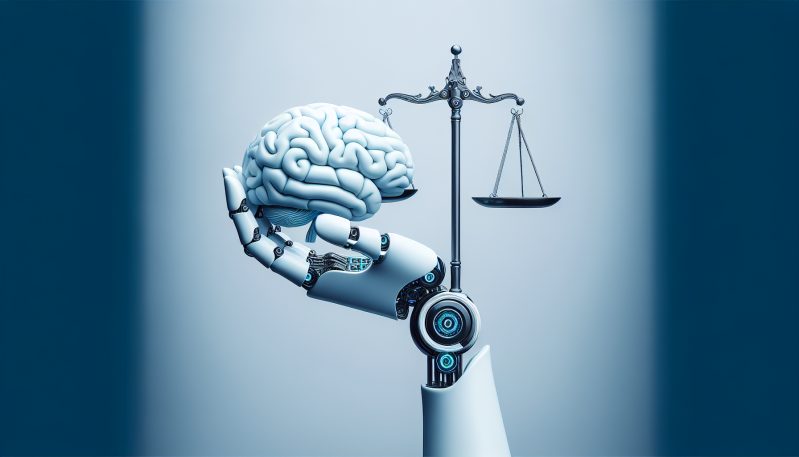OpenAI, a leader in artificial intelligence development, has awarded a $1 million grant to Duke University to fund research into algorithms that can predict human moral judgments. This initiative is part of OpenAI’s broader commitment to advancing AI technology that can navigate the complexities of human ethics. The research is being led by Professor Walter Sinnott-Armstrong, an expert in practical ethics at Duke, and co-investigator Jana Borg, who have previously worked on AI systems designed to align with moral decision-making processes.
The project, known as "Research AI Morality," aims to develop algorithms that can assess human moral decisions in situations involving conflicting factors in domains such as medicine, law, and business. This ambitious goal seeks to create AI systems capable of understanding the nuances of moral dilemmas and making decisions that reflect human values. While details of the research remain limited, OpenAI has indicated that the project will continue through 2025, contributing to the larger field of moral AI.
AI’s potential to act as "moral GPS” is a concept that has been explored in previous studies by Sinnott-Armstrong and Borg. In the past, they’ve worked on algorithms that determine who should receive organ donations, such as kidney transplants, and explored scenarios where AI could be trusted to make moral decisions. Despite these promising efforts, the challenge of instilling AI with a true understanding of morality remains a significant hurdle. AI systems today, including those funded by OpenAI, are primarily statistical machines that analyze vast amounts of data to make predictions. While they can identify patterns, they do not comprehend ethical principles or the human emotions that shape moral decisions.
A prime example of AI’s struggles with moral reasoning is the Allen Institute for AI’s tool, Ask Delphi, which was created to make ethically sound decisions. Although the tool performed well with basic moral dilemmas, such as recognizing cheating as wrong, it faltered when the questions were rephrased or nuanced. This limitation highlights a crucial flaw in AI’s ability to deal with subjective and complex moral issues.
One of the key challenges faced by AI in moral decision-making is its dependence on the data it is trained on. Modern machine learning models, such as those used by OpenAI, are built on datasets that are overwhelmingly composed of Western, educated, industrialized, rich, and democratic (WEIRD) perspectives. This bias means that AI often reflects the values and viewpoints that dominate the web, which may not always align with the diverse moral beliefs of people around the world.
The researchers at Duke are attempting to overcome these challenges by exploring how AI can handle the inherent subjectivity of morality. Philosophers have long debated the best ethical frameworks to guide decision-making, and there is no universal agreement on which approach is superior. Some, like Kantian ethics, focus on absolute moral rules, while others, like utilitarianism, prioritize outcomes that maximize overall happiness. The researchers aim to teach AI to navigate these differing ethical perspectives and apply them in real-world situations.
OpenAI’s investment in this field signals the growing importance of creating AI systems that are not only intelligent but also capable of making ethically sound decisions. If successful, these efforts could lead to AI technologies that are better equipped to assist in complex decision-making processes in areas like healthcare, law enforcement, and business, where moral considerations play a crucial role.
However, the road ahead is not without obstacles. The question remains whether it is even possible to create an AI that can truly understand and predict human moral judgments, given the vast diversity of moral frameworks and the subjective nature of ethical decision-making. This research represents one of the most ambitious efforts yet to tackle these profound challenges, and it will be fascinating to see how it develops in the coming years.
TECHCRUNCH
Read More






 Saturday, 28-02-26
Saturday, 28-02-26







